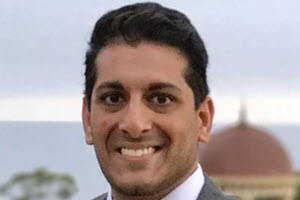An anesthesiologist is a board certified MD or DO medical doctor that specializes in the planning, delivering and monitoring of anesthesia. Anesthesiologists primarily work in a hospital setting in procedure rooms or surgical suites. Delivering anesthesia involves multiple steps including planning the type of anesthesia to be delivered, monitoring the patient’s health while they are under anesthesia, and evaluating and overseeing patients when the wake up or come out of anesthesia.
Anesthesia can sometimes be dangerous, so it is vital for anesthesiologists to perform their job correctly to protect the health of patients. In this article we will discuss the training it takes to become an anesthesiologist, the difference between anesthesiologists and other anesthesia providers, anesthesia subspecialties in medicine, anesthesiologist salaries, education requirements, and more.
 At-a-glance
At-a-glance
Free guide
Anesthesiology: Is it the right specialty for you?
- Scope of Practice
- Subspecialties
- Future Job Outlook
Quick access. No spam. 10 pages.
Quick Navigation Links and FAQs
- Length of training?
Are Anesthesiologists MD or DO physicians? - Differences between Anesthesiologists and Anesthetists?
- What subspecialties exist for Anesthesia doctors?
- What is pain medicine anesthesiology?
- Duties of obstetric anesthesiologists?
- How much do Anesthesiologists make?
- What undergraduate major is best for a career in anesthesiology?
- Getting started in medicine
How many years to become an Anesthesiologist doctor?
The short answer is that it takes at least 12 years of medical training following graduation of high school in the career path to become an anesthesiologist doctor. The first step is attending college and completing required prerequisite courses for admission to medical school. These courses commonly include biology, chemistry (organic and inorganic), physics, microbiology, anatomy, physiology, math, and english courses. During this time pre-medical students also need to complete the Medical College Admission Test (MCAT). Most but not all medical schools require completion of a bachelor's degree for matriculation.
Once accepted, medical school lasts four years. The first two years are spent in didactic based courses, while the latter two years are spent in clinical medical rotations in a hospital setting. During the last year of residency, medical students apply to different residency medicine programs, such as anesthesia.
Once medical students graduate medical school and become a doctor they begin anesthesia residency. Residency lasts four years and during this time, anesthesia residents will learn both the knowledge and hands on skills to practice anesthesia medicine. After four years of residency, medical residents will complete anesthesia board exams. Following passing of medical boards, anesthesiologists are fully qualified and finished with their 12 years of training and finally start their career. Some individuals choose to pursue further specialized training by attending a fellowship.

Is an Anesthesiologist a DO or MD?
Is an anesthesiologist a doctor? The answer is yes. Anesthesiologists are either a DO, also called osteopathic doctor, or an MD, also called an allopathic physician. The terminology in the field of anesthesia medical providers can be confusing. However, the term anesthesiologist is reserved for DO or MD medical doctor only. Other anesthesia providers may include nurse anesthetists or anesthesiologist assistants. The difference between an anesthetist and anesthesiologist doctor is discussed in the following section.
Anesthetist vs Anesthesiologist - What is the difference?
As mentioned, an anesthesiologist is a doctor of medicine or doctor of Osteopathy that has completed medical school and residency. On the other hand a certified registered nurse anesthetist, sometimes shortened to the term anesthetist, is a nurse who has completed a Bachelors of Science in Nursing following additional training in Anesthesia. Due to the differences in training and education Anesthesiologists and Nurse Anesthetists have slightly different roles.
To become a nurse anesthetists, one must currently complete a Bachelors in Nursing followed by an internship, or masters, in Anesthesia. However, by 2025, all nurse anesthetists will need a doctorate to practice. Nurse anesthetists have a variety of roles in delivering anesthesia to patients during surgery. They will plan anesthesia doses, administer the anesthesia to patients during surgery, monitor vital signs to keep patients healthy, and ensure that patients come out of anesthesia after surgery. Generally, anesthetists are able to perform all these tasks on their own without constant supervision from an anesthesiologist. However, in challenging cases nurse anesthetists and anesthesiologists will work together.
Anesthesiologists have the most medical training and longest education. This allows them to provide anesthesia and monitor the health of the most complicated patients during a long surgery. With their thorough training in medicine, they can also provide advice to colleagues, including nurse anesthetists, on challenging and long surgery cases.
What are the subspecialties of Anesthesiology?
Following completion of anesthesia residency, there are several different areas that they can continue their training in medicine. This additional training is termed a fellowship. The anesthesia fellowship opportunities include, but are not limited to:
- Adult Cardiothoracic Anesthesiology - 1 year in duration
- Critical Care Medicine - 1 year in duration
- Obstetric Anesthesiology - 1 year in duration
- Pain Medicine - 1 year in duration
- Pediatric Anesthesiology - 1 year in duration

What do pain medicine Anesthesiologists do?
One of the areas that an anesthesia doctor can specialize in following completion of residency is pain medicine. This is an optional fellowship that doctors can complete to further their training. Pain medicine doctors are not all anesthesiologists and may come from a variety of medical backgrounds including neurology, psychiatry, and physical medicine and rehabilitation. Pain medicine health doctors specialize in managing patient’s chronic pain. There are a variety of different medical health conditions that can cause chronic pain. Treating chronic pain does not necessarily require the use of pain medications. Some other interventions that pain medicine doctors may use to improve their patient’s health include physical therapy, stretching, lifestyle changes, and more.
What do Obstetric Anesthesiologists do?
Obstetric anesthesiology, also sometimes shortened to ob-gyn anesthesia, is a subspecialty in health care that provides care to patients during and after vaginal delivery or Cesarean section surgery. Giving birth is often a painful experience and patient’s require excellent pain management. Pain medicine can be given to patients via a epidural for both vaginal deliveries and surgical c-sections. The anesthesiologist will place the epidural in the patient’s spine and monitor the delivery of the medicine during the patients procedure or surgery. This is another excellent option for anesthesiology doctors to pursue as a career in health care.
Anesthesiologist salary - How much do Anesthesiologists make?
Anesthesiologists make some of the highest salaries in medicine, which makes for a great career. According to the Medscape Physician Compensation Report (an annual survey sent to physicians), as of 2023, Anesthesiologists make $448,000 annually plus an average of $57,000 as a bonus. However, this survey does not differentiate between the different types of jobs that an anesthesiologist doctor may have.
Another source, AAMC Careers in Medicine, cites the salary of Anesthesiologists that work in academic medicine (associated with a large, research or teaching hospital). According to AAMC Careers in Medicine, an assistant professor of Anesthesia makes $376,000 annually, while an associate/full professor makes $414,000 annually. Find out why Anesthesiologists get paid so much here.

What is the best major for becoming an Anesthesiologist?
No specific undergraduate major is required to be admitted into medical school and start a health care career in anesthesia. However, due to the high amount of required courses in Biology and Chemistry, many students opt to complete their education, select a major, and complete a degree in one of these fields. Another common degree includes physics or other science fields. However, as long as all prerequisite courses are completed, pre-medical health students that have completed a major or degree of any kind can be accepted into medical school.
How to get started in medicine?
Getting started in medicine begins with attending an allopathic or osteopathic medical school. The University of Medicine and Health Sciences, (UMHS) is an allopathic Medical school and confers the Doctor of Medicine, M.D. degree upon graduation. If you are just starting your journey with UMHS, then check out our University of Medicine and Health Sciences - Caribbean medical school page. To apply, please start your application or submit your AMCAS or AACOMAS here.
 At-a-glance
At-a-glance
Free guide
Anesthesiology: Is it the right specialty for you?
- Scope of Practice
- Subspecialties
- Future Job Outlook
Quick access. No spam. 10 pages.
Related and popular content: Please click on the underlined links to read other articles about anesthesiology and UMHS alumni that made careers as anesthesiologists.

|
What is an Anesthesiologist? |

|
Interview with Anesthesiologist Dr. Mikayla Troughton |

|
Interview with Anesthesiologist Dr. Jay Kumar |

Callie Torres is a double board-certified physician, a freelance health and medical writer, as well as an author of many peer-reviewed medical articles.

















